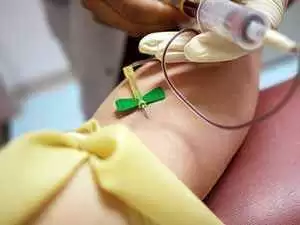
Celiac.com 07/08/2010 - Acute abdominal pain is the most common symptom leading to emergency surgery; accounting for up to 50% of emergency surgical admissions and nonspecific abdominal pain (NSAP) likely accounts for 40% of the cases. While abdominal pain can often be a symptom of celiac disease, up until this point there have been no official studies to determine the the association of celiac disease and abdominal pain.
A group of researchers in the UK attempted to uncover the connection between celiac disease and abdominal pain. Using a case-controlled study of 300 consecutive, new, and unselected patients exhibiting acute abdominal pain, and a healthy control group not presenting any abdominal pain, were matched by age and gender and then assessed accordingly.
Celiac.com Sponsor (A12):
Initially, the research team under Dr. David S. Sanders of the Gastroenterology and Liver Unit, Royal Hallamshire Hospital, Sheffield, UK, used immunoglobulins, IgA/IgG anti-gliadin (ADA), and endomysial antibodies (EMA) to evaluate the test subjects for celiac disease. Any of the test subjects that tested with a positive IgA, AGA, EMA or IgG AGA accompanied by IgA deficiency was provided with the opportunity to receive a small bowel biopsy to confirm a celiac diagnosis; only 1 person declined.
Among the acute abdominal pain demographic, the median age range was 57 years old and exactly half of the 300 participants were female. All test patients were given an initial biochemical, hematologic, and immunologic profile. Of the patients tested, 33 with abdominal pain had either a positive IgA gliadin antibody, EMA or a combination of both. Of those 33 patients, 9 had histologically proven celiac disease. Among the healthy control group, 2 people were discovered to have celiac disease.
Researchers matched case controls and then determined the antibody status of the control group and the abdominal pain group. While there were no corresponding pairs, the statistical chance of having celiac disease when demonstrating acute abdominal pain has an odds ratio of 4.6. Although when NSAP was solely taken into consideration, the prevalence of celiac disease exhibited profound significance with a rate of 10.5%.
Of the test subjects that maintained the gluten-free diet for the recommended time period of 12 -18 months, all of them exhibited an improvement of their symptoms, and their antibody profiles were negative.
From this study, researchers concluded that targeting patients with NSAP or those that exhibit other high risk celiac symptoms, will likely improve the diagnostic yield of celiac disease, specifically among those exhibiting typical celiac symptoms. Additionally, the ideal situation would be if more doctors were to recognize NSAP symptoms as having the potential to be connected with celiac disease and screen for celiac accordingly; as delayed or undiagnosed celiac disease can eventually lead to a myriad of other long-term and permanent health issues including, osteoporosis, infertility, and an increased risk of cancer.
Source:
- Open Original Shared Link




.webp.5cf0e450131b7d3b603652520875971f.webp)



Recommended Comments
There are no comments to display.